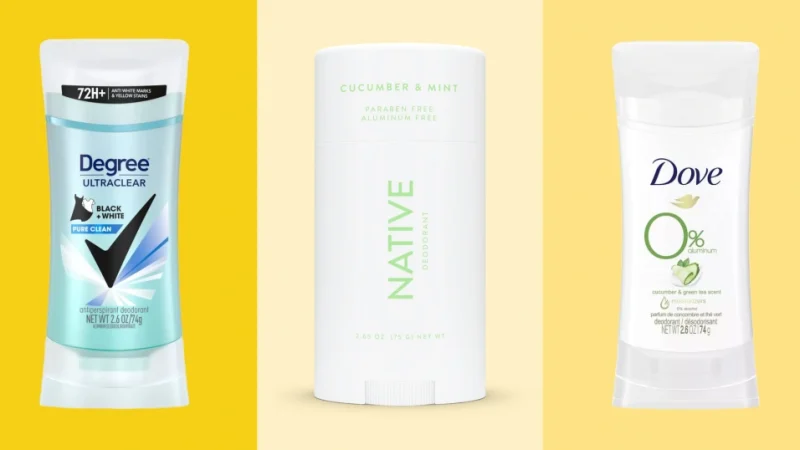You apply your favorite stick, roll-on, or spray in the morning, but by lunchtime you’re already noticing sweat or odor. If this sounds familiar, you’re not alone. Many people search for “antiperspirant deodorant not working” because they’re frustrated that their go-to product doesn’t seem to do its job anymore.
The good news? You’re not broken, and your body isn’t unusual. There are scientific reasons why antiperspirant or deodorant sometimes fails—and practical solutions to make it work better. This article will break down the causes, fixes, and alternatives so you can find long-lasting freshness and confidence.
Understanding the Difference: Antiperspirant vs. Deodorant
Before diving into why your product isn’t working, it’s important to clarify:
- Deodorant: Masks or neutralizes odor caused by bacteria.
- Antiperspirant: Uses aluminum salts to block sweat glands and reduce perspiration.
- Combination Products: Many sticks and sprays combine both odor protection and sweat reduction.
If you’re using deodorant only, you may still sweat heavily, which can make you feel like your product “isn’t working.”
Common Reasons Antiperspirant Deodorant Stops Working
Applying at the Wrong Time
Most people swipe on antiperspirant in the morning. But nighttime application is more effective, since sweat glands are less active while you sleep, allowing aluminum salts to form plugs.
Sweating Too Much (Hyperhidrosis)
If you have excessive sweating, standard antiperspirants may not be strong enough. You might need clinical-strength products or prescription solutions.
Not Giving It Enough Time
Antiperspirants aren’t instant. They need 6–8 hours to block sweat glands properly. If you’re applying right before activity, they may not have set in.
Product Build-Up
Layering deodorant or antiperspirant daily without proper cleansing can create residue that reduces effectiveness.
Shaving Irritation
Applying antiperspirant right after shaving can cause irritation, making you sweat more.
Body Chemistry Changes
Hormones, diet, stress, or medications can alter how your body reacts to products. Puberty, pregnancy, or menopause can make your regular brand less effective.
Product Expiration
Yes—antiperspirants have expiration dates. Old formulas may lose potency.
Choosing the Wrong Formula
- Gels and sprays dry faster but may wear off quickly.
- Sticks and roll-ons usually provide longer coverage.
- Natural deodorants don’t block sweat, only odor.
How to Make Antiperspirant Work Better
Apply at Night
Let the formula absorb while you sleep for maximum effectiveness the next day.
Clean Skin First
Apply on dry, clean underarms—not after sweating or showering in hot humidity.
Use Clinical Strength
If drugstore options aren’t enough, try clinical-strength antiperspirants with higher aluminum content.
Alternate Products
Sometimes switching formulas prevents your body from adapting. Rotate between a couple of trusted brands.
Shave Strategically
Shave at night and apply antiperspirant the next morning to avoid irritation.
Reapply if Needed
For heavy sweaters, a mid-day reapplication may be necessary.
Check Expiration Dates
Replace expired sticks and sprays for maximum protection.
When Antiperspirant Isn’t Enough
If nothing seems to work, you may need to explore medical options.
- Prescription Antiperspirants: Contain higher concentrations of aluminum chloride.
- Botox Injections: FDA-approved for excessive underarm sweating (hyperhidrosis).
- Iontophoresis: A medical treatment using electrical currents to reduce sweating.
- Oral Medications: In rare cases, doctors prescribe drugs to reduce sweat gland activity.
Alternative Solutions Beyond Antiperspirants
Natural Deodorants
They won’t block sweat but may reduce odor using ingredients like baking soda, coconut oil, or activated charcoal.
Sweat-Resistant Clothing
Moisture-wicking fabrics help keep you dry during workouts or hot weather.
Lifestyle Adjustments
- Limit spicy foods, alcohol, and caffeine (all increase sweating).
- Manage stress through breathing techniques or mindfulness.
Armpit Detox
Some people find that switching from traditional to natural products requires a “detox” phase where odor increases temporarily but balances out over time.
Popular Brands That Work for Persistent Sweating
- Certain Dri (clinical strength, recommended by dermatologists)
- Secret Clinical Strength
- Gillette Clinical Strength
- Degree Clinical Protection
- Carpe (cream-based, designed for hyperhidrosis)
If your antiperspirant deodorant isn’t working, trying one of these high-strength or specialized brands may help.
Comparing Regular vs. Clinical-Strength Antiperspirants
| Feature | Regular Antiperspirant | Clinical Strength |
| Aluminum Content | 10–15% | 20–25% |
| Effectiveness | Mild to moderate sweating | Heavy sweating/hyperhidrosis |
| Application | Anytime | Best at night |
| Cost | $3–$6 | $7–$12 |
| Availability | Drugstores | Drugstores + pharmacies |
Tips for Staying Fresh All Day
- Shower daily and use antibacterial soap.
- Dry underarms thoroughly before applying product.
- Wear breathable, cotton-based clothing.
- Carry travel-size deodorant for emergencies.
- Hydrate well—dehydration can intensify body odor.
Why Your Antiperspirant May Have Worked Before But Not Now
It’s common for people to feel like their antiperspirant suddenly “stopped working.” This isn’t because your body builds resistance—it’s more about changes in your lifestyle, environment, or body chemistry. Stress, hormones, or even moving to a hotter climate can all affect sweating and odor.
Conclusion
If you’ve found your antiperspirant deodorant not working, don’t panic. The problem usually comes down to timing, product choice, or body chemistry. By switching application habits, trying clinical-strength options, or seeking medical solutions, you can regain control over sweating and odor.
Remember, sweat is natural—and everyone’s body reacts differently. The key is finding the right combination of products and habits that keep you feeling confident all day long.
FAQs
1. Why does my deodorant stop working halfway through the day?
Sweat and bacteria can overwhelm lighter formulas. Switching to clinical strength or reapplying may help.
2. Can your body become immune to antiperspirant?
No. But changes in hormones, diet, or environment can make it feel less effective.
3. Should I apply antiperspirant at night or in the morning?
Nighttime application works best because sweat glands are less active.
4. What’s the difference between deodorant and antiperspirant?
Deodorant fights odor; antiperspirant blocks sweat. Many products combine both.
5. What if nothing works for my sweating?
See a dermatologist. Options like prescription antiperspirants or Botox may help.
Also read: Carabiner Keyring: 10 Powerful Reasons You Need One Today









